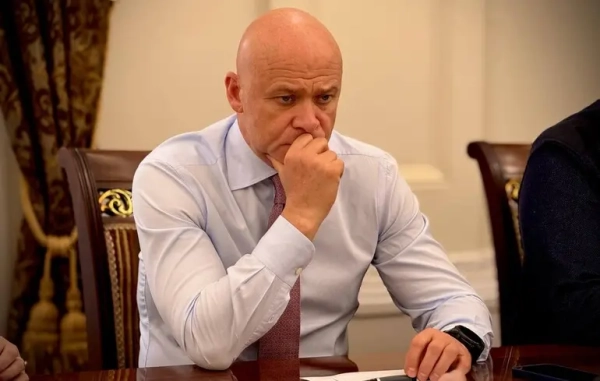
The Department of Justice (DOJ) has reportedly asked Congress for a host of new powers as the coronavirus spreads across the country, including the ability to ask judges to detain people indefinitely without trial during emergency situations and natural disasters.
The requests, first reported by Politico’s Betsy Woodruff Swan Saturday, come amid concerns the Trump administration is using the pandemic to implement major policy changes such as tighter border and asylum restrictions. Given President Donald Trump declared a national emergency on March 13, the powers requested by the DOJ would likely be in effect should its request be granted. However, the requests are unlikely to be approved — a bipartisan group of lawmakers has already signaled opposition to them.
In one document Politico obtained, the department suggested the US attorney general be able to ask the chief judge of any district court to stop court proceedings “whenever the district court is fully or partially closed by virtue of any natural disaster, civil disobedience, or other emergency situation.” The department’s proposal would also give judges the power to pause “any statutes or rules of procedure” at every stage of the justice process from pre-arrest to post-trial.
The DOJ reportedly argued that judges can already pause proceedings in emergency situations and that a congressionally-approved policy would just make processes more “consistent.”
Also reportedly included in the request was a proposal to put a hold on the statute of limitations for criminal investigations during national emergencies and for a year after the emergencies end; to expand use of videoconference hearings without defendants’ consent; to ban people with Covid-19 from applying for asylum; and to, in effect, bar people from the travel ban list from applying for asylum.
Legal experts and politicians on both sides of the aisle quickly condemned the request. Sen. Mike Lee (R-UT) tweeted “OVER MY DEAD BODY;” Democratic Senate Minority Leader Chuck Schumer (NY) wrote, “Two Words: Hell No;” and Democratic New York Rep. Alexandria Ocasio-Cortez tweeted “Absolutely not” — a sentiment Sen. Rand Paul’s (R-KY) chief strategist, Doug Stafford, agreed with.
The DOJ did not immediately respond to a request for comment from Vox.
The Trump administration has an opportunity to make sweeping policy changes during the pandemic
Trump’s declaration of a national emergency is a major boon to states struggling to respond to the crisis because it frees up $42.6 billion in federal funds that can be used for testing, medical facilities, and other supplies.
But a national emergency declaration also gives Trump access to more than 120 broad powers, many with few restrictions.
On Friday, the Trump administration cited coronavirus concerns as a reason to bar any non-citizens or lawful permanent residents from entering the US along the northern and southern borders, with few exceptions. The decision affects asylum seekers, who officials are directed to turn away at the border rather than taking them to a detention center for processing their claims.
“When held at border facilities, these migrants were spreading the virus to other migrants, to [Customs and Border Protection] agents and border health care workers and even the United States population as a whole,” said US Health and Human Services Secretary Alex Azar.
It’s unclear, however, exactly how the policy will work in practice. Mexico said last week it will not accept people returned from the US who are not Mexican or Central American, and instead, Immigration and Customs Enforcement would need to use chartered planes to return migrants to their home countries.
Trump has also used the crisis caused by the virus to promote ideas of a tax credit for companies bringing manufacturing from China back to the US (a favorite initiative of former House Speaker Newt Gingrich), a middle-class tax cut, a temporary payroll tax cut, and an interest rate cut from the Federal Reserve.
Sourse: vox.com






